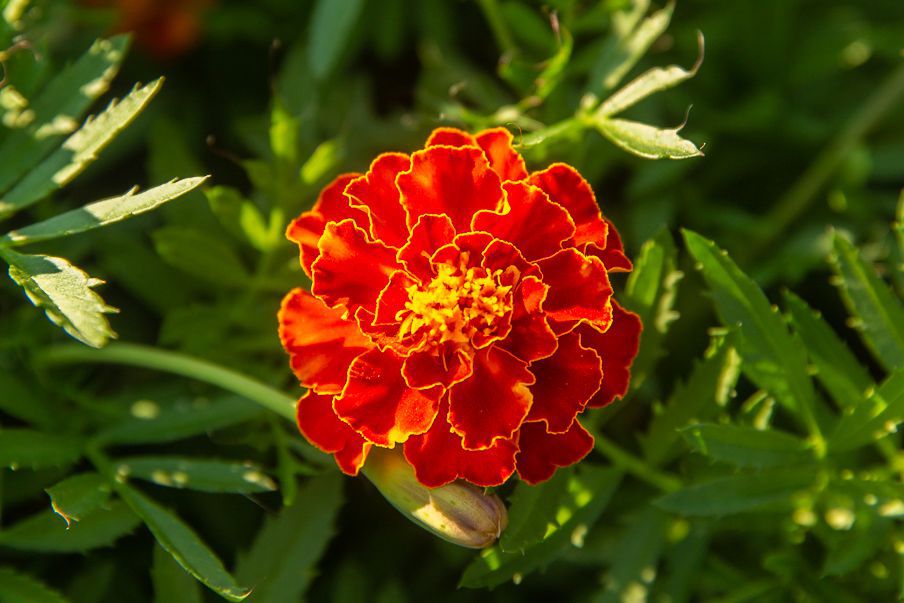Many plants contain natural compounds that can repel or deter certain types of insects. This is often referred to as companion planting, where certain plants are grown together to help control pests naturally. Here are some examples:
- Marigolds: Marigolds are known to repel a variety of pests, including aphids, whiteflies, mosquitoes, and nematodes.
- Lavender: Lavender is known for its pleasant fragrance and can help repel mosquitoes, moths, and flies.
- Citronella Grass: Citronella is commonly used in candles and sprays to repel mosquitoes. The grass itself can also be grown to help keep mosquitoes at bay.
- Mint: Mint plants, including peppermint and spearmint, can repel ants, mosquitoes, and even mice.
- Basil: Basil can repel flies and mosquitoes. It’s also known to enhance the growth and flavor of tomatoes.
- Chrysanthemums: Chrysanthemums contain pyrethrin, a natural insect repellent often used in commercial insect sprays.
- Rosemary: Rosemary can repel insects like mosquitoes and some types of flies. It’s also useful for repelling certain types of beetles.
- Garlic: Garlic can repel aphids, cabbage loopers, and other pests. When planted near roses, it can help prevent aphid infestations.
- Nasturtiums: Nasturtiums can deter aphids, whiteflies, and squash bugs. They also attract predatory insects that feed on pests.
- Petunias: Petunias can repel aphids, tomato hornworms, and other insects that commonly attack vegetable plants.
- Chives: Chives can deter pests like aphids and carrot flies. They also have the benefit of deterring fungal diseases.
- Lemongrass: Lemongrass contains citronella oil, which can help repel mosquitoes and other flying insects.
- Sunflowers: Sunflowers can attract aphid-eating ladybugs, providing a natural control for aphid populations.
It’s important to note that while these plants can help repel certain pests, they might not provide complete protection on their own. Integrated pest management, which combines multiple strategies like companion planting, physical barriers, and proper garden maintenance, is often the most effective approach to controlling pests in the garden. Additionally, individual results can vary based on factors like local climate, plant health, and the specific insect species in your area.
